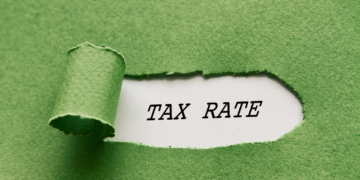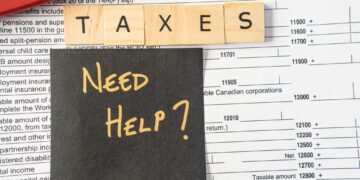Complete Discussion
The Law on Harmonization of Tax Regulations (UU HPP) basically revises the provisions on the imposition of Income Tax (PPh) on in kind and/or enjoyment. In the HPP Law, in kind (rewards received in the form of goods) or enjoyment (the right to use a facility and/or service) is the object of the imposition of PPh as stated in Article 4 paragraph (1) letter a of the Income Tax Law up to. The HPP Law is as follows:
“(1) The object of tax is income, namely any additional economic capacity received or acquired by the Taxpayer, whether originating from Indonesia or outside Indonesia, which can be used for consumption or to increase the wealth of the Taxpayer concerned, with the name and in any form, including:
a. compensation or compensation in connection with work or services received or obtained including salary, wages, allowances, honorarium, commission, bonuses, gratuities, pensions, or other forms of compensation including in kind and/or enjoyment, unless otherwise specified in this Law ;”
However, not all in kind are designated as tax objects. Article 4 paragraph (3) letter d regulates as follows:
“(3) What is excluded from the tax object is:
d. compensation or compensation in connection with work or services received or obtained in kind and/or enjoyment, including:
1. food, foodstuffs, beverage ingredients, and/or beverages for all employees;
2. nature and/or enjoyment provided in certain areas;
3. in kind and/or enjoyment that must be provided by the employer in carrying out the work;
4. in-kind and/or enjoyment sourced from or financed by the State Revenue and Expenditure Budget, Regional Revenue and Expenditure Budget, and/or Village Revenue and Expenditure Budget; or
5. nature and/or enjoyment with certain types and/or limitations;”
BPJS contributions themselves are not in kind as regulated in the provisions above. Thus, tax treatment cannot be equated with in kind/enjoyment. BPJS contributions are divided into 2 types, namely BPJS Health and BPJS Employment.
BPJS Health is included in the health insurance category. Health insurance contributions/premiums can be paid by individual taxpayers (WP) or paid by employers. The tax treatment for employers for these two premium payments is also different. If the health insurance premium is paid by the employer, the premium will be calculated as income for the individual taxpayer concerned so that it will increase the taxable income in calculating PPh Article 21. Meanwhile for the employer, the health insurance premium can be a deduction in calculating the company’s corporate income tax. .
Then, if the health insurance premium is paid by individual taxpayers themselves, the premium will also be the object of Income Tax Article 21. However, for employers, the health insurance premium cannot be used as a deduction in calculating Corporate Income Tax. This is regulated in Article 9 paragraph (1) letter d of the Income Tax Law as follows:
“(1) To determine the amount of Taxable Income for domestic Taxpayers and permanent establishments which should not be deducted:
d. premiums for health insurance, accident insurance, life insurance, endowment insurance and scholarship insurance, which are paid by individual taxpayers, unless paid by the employer and the premiums are counted as income for the taxpayer concerned;”
Every payment of BPJS Health premiums, whether made by the employee himself or by the employer company, will become the object of PPh Article 21 for employees.
Meanwhile, BPJS Employment contributions are divided into 4 categories, namely JHT (Old Age Security), JKK (Work Accident Insurance), JKM (Death Insurance), and JP (Pension Guarantee). The tax treatment for JHT and JKK contributions/premiums is the same as the tax treatment for BPJS health as explained above.
Payment of compensation in the form of BPJS Health, JKK and JKM from BPJS to individual taxpayers will no longer be subject to PPh Article 21 because it has become an object when insurance contributions are paid to BPJS as regulated in Article 4 paragraph (3) letter e of the Income Tax Law.
“(3) What is excluded from the tax object is:
e. payments from insurance companies due to accidents, illness, or due to the death of the insured person, and scholarship insurance payments;”
Then, JHT and JP will become objects of PPh Article 21 when the insurance company, in this case BPJS, provides compensation to employees. Thus, the contributions/premiums paid every month will be excluded as income tax objects as regulated in Article 4 paragraph (3) letter g of the Income Tax Law as follows:
“(3) What is excluded from the tax object is:
g. contributions received or earned by pension funds whose establishment has been approved by the Financial Services Authority, whether paid by employers or employees;”
However, pension contributions (JHT and JP) paid by the employer can be a deduction in calculating the employer’s corporate income tax. This is regulated in Article 6 paragraph (1) letter c of the Income Tax Law as follows:
“(1) The amount of Taxable Income for domestic Taxpayers and permanent business establishments is determined based on gross income minus costs for obtaining, collecting and maintaining income, including:
e. contributions to pension funds whose establishment has been approved by the Financial Services Authority;”
In conclusion, the objects of PPh Article 21 for employees are health insurance contributions/premiums (BPJS Health), accident insurance premiums (JKK), life insurance premiums (JKM), both paid by the employer and the employees themselves. Apart from that, pension fund compensation (JHT and JP) will become the object of PPh Article 21 when the compensation is provided by the insurance company to employees in the future. Basically, the provisions regarding insurance in the HPP Law have not changed so they are the same as the previous provisions.














